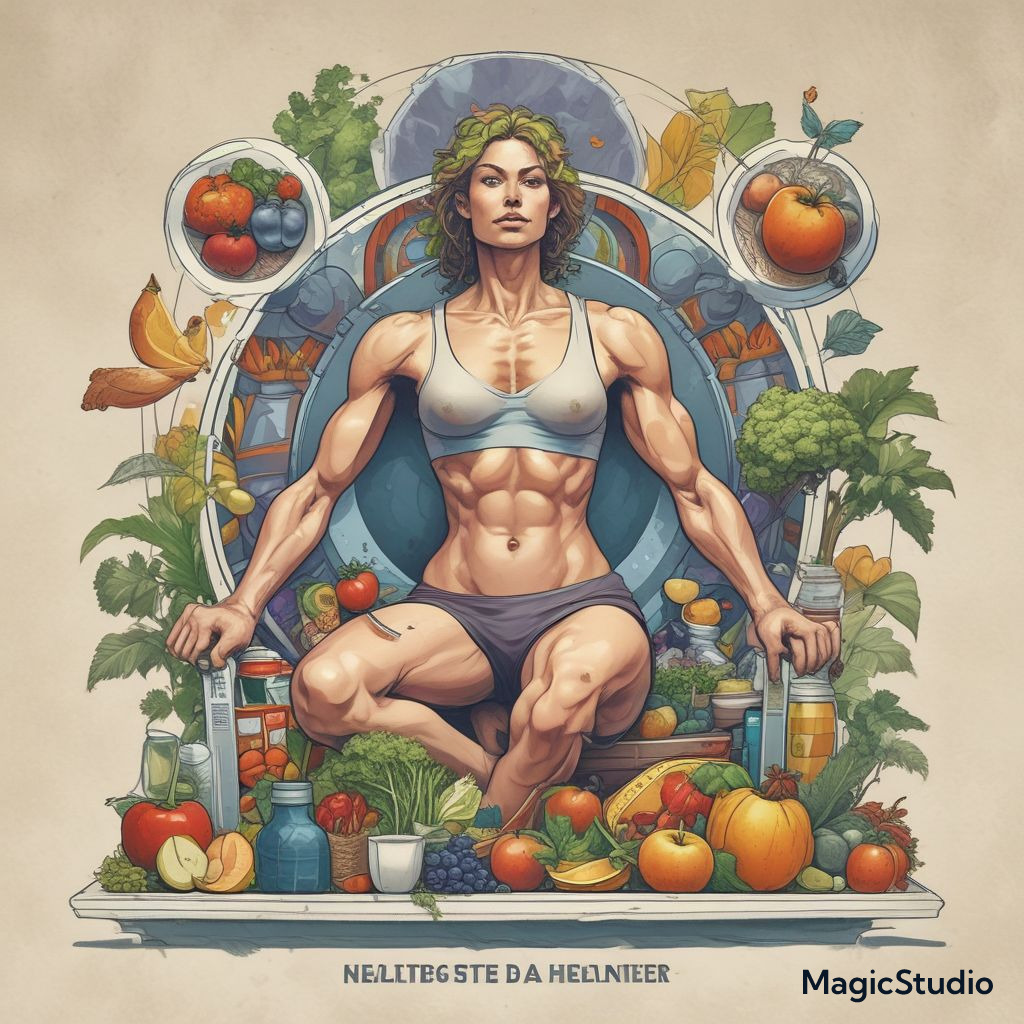10 Simple Ways to Live a Healthier, More Balanced Lifestyle in 2025

In 2025, we all strive for a life that’s not only productive but also fulfilling and healthy. Achieving a balanced lifestyle means taking care of your physical health, mental well-being, and maintaining strong relationships. Whether you’re juggling work, personal life, or hobbies, these simple habits will help you lead a healthier, more balanced life.
1. Start Your Day with a Morning Routine
The way you start your day can set the tone for the rest of it. Incorporate healthy habits into your morning routine, such as:
- Hydrating with a glass of water
- Stretching or doing yoga to wake up your body
- Mindful meditation to center your thoughts
- Having a nutritious breakfast to fuel your day
Creating a morning routine helps you take control of your day and boosts productivity.
2. Incorporate Regular Exercise Into Your Life
Physical activity is essential for a healthy lifestyle. You don’t need to spend hours at the gym—just aim for 30 minutes of exercise a few times a week. Try:
- Walking or biking to work or school
- Taking the stairs instead of the elevator
- Doing short home workouts or yoga sessions
- Dancing to your favorite music
Staying active can boost your energy levels, improve mood, and reduce stress.
3. Prioritize Mental Health
A balanced lifestyle isn’t just about physical health—it’s about mental well-being too. Taking time to manage your mental health can help you maintain equilibrium. Consider these tips:
- Practice mindfulness or meditation daily
- Journaling to express thoughts and clear your mind
- Engage in hobbies you enjoy, whether that’s painting, reading, or crafting
- Talk to a therapist or counselor if you’re feeling overwhelmed
Mental health plays a key role in overall life satisfaction.
4. Stay Connected with Loved Ones
Spending quality time with family and friends is essential for a balanced life. Whether it’s a weekly dinner or a quick phone call, maintaining strong relationships helps reduce stress and increases happiness. Try to:
- Schedule regular meetups or calls
- Plan activities to do together, such as hiking or visiting a local museum
- Make time for supportive conversations to help nurture bonds
A good social support system can make a world of difference.
5. Eat Nutritious, Whole Foods
What you eat directly impacts your energy levels and mood. Focus on a balanced diet by incorporating more whole foods:
- Fruits and vegetables: Aim to fill half your plate with veggies or fruits at each meal
- Whole grains: Switch refined grains for whole grains like oats, quinoa, and brown rice
- Healthy fats: Incorporate sources like avocados, olive oil, and nuts
- Drink plenty of water to stay hydrated
Choosing nutrient-dense foods helps sustain energy and supports long-term health.
6. Practice Gratitude Daily
Gratitude can improve your outlook on life and reduce negative thinking. A few minutes each day to reflect on what you’re thankful for can improve your mental health. Try:
- Writing in a gratitude journal each morning or evening
- Verbalizing your appreciation to loved ones
- Reflecting on the small moments that bring joy
Gratitude shifts your mindset and increases happiness.
7. Get Enough Sleep
Sleep is crucial for both physical and mental health. In 2025, many people are struggling with sleep, but it’s essential to make it a priority. Aim for at least 7–8 hours of sleep each night. Tips for better sleep include:
- Creating a bedtime routine
- Limiting screen time before bed
- Creating a calming sleep environment with cool temperatures and minimal light
- Avoiding caffeine late in the day
Good quality sleep helps you recharge and boosts overall productivity.
8. Reduce Stress with Simple Strategies
Chronic stress can have negative effects on your health, but there are simple strategies you can implement to manage it:
- Deep breathing exercises or mindfulness to relax your body and mind
- Taking regular breaks during work or study
- Setting realistic goals and breaking them into smaller tasks
- Engaging in physical activities like walking or yoga
Stress management helps prevent burnout and fosters a sense of peace.
9. Embrace Minimalism and Declutter
A cluttered environment can contribute to stress and a feeling of being overwhelmed. Adopting a minimalist approach can improve both your physical and mental well-being:
- Declutter your home and workspace to create a more organized environment
- Keep only what adds value to your life
- Create systems to stay organized, reducing unnecessary mental clutter
Simplifying your life can give you more time, space, and peace of mind.
10. Practice Self-Care and Set Boundaries
Self-care isn’t selfish—it’s necessary. Whether it’s taking a bubble bath, reading a book, or taking a walk in nature, make sure to carve out time just for you. Additionally, setting healthy boundaries in both your personal and professional life is crucial:
- Learn to say no to things that drain your energy
- Schedule regular self-care time
- Prioritize activities that nurture your body and soul
Taking care of yourself allows you to show up as the best version of you in all areas of life.
Conclusion
Living a healthy and balanced lifestyle in 2025 is all about finding harmony between your body, mind, and surroundings. By incorporating small, intentional changes into your routine, you can boost your energy, improve your mental health, and lead a more fulfilling life. Start today and take the first step toward a healthier, more balanced you!



